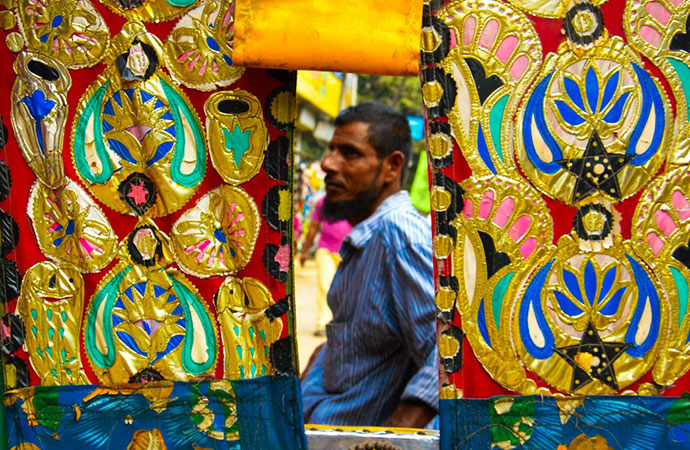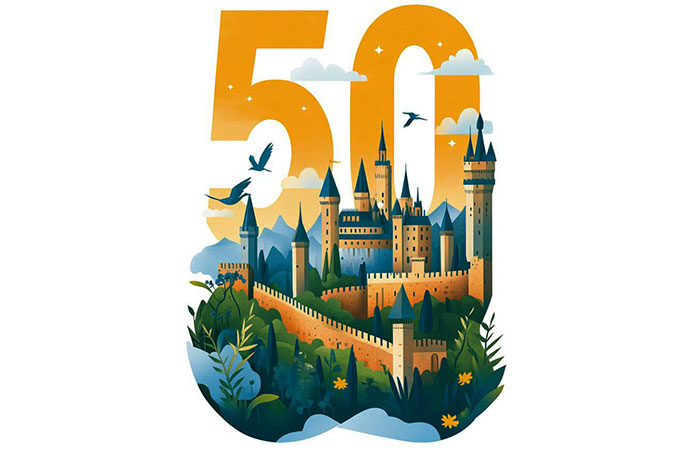Column

Photo: Collected
In his book, The Outsider, Colin Wilson recalls the author G.K. Chesterton. "Chesterton has a hero who loves London so much that he would not dream of saying 'A taxicab came round the corner like the wind,' but rather, 'The wind came around the corner like a taxicab.'" Wilson calls that the Existentialist approach. "The way of Alienation (Hegel's phrase) points outward, towards abstraction; the way of mysticism points inward, towards the concrete." In that metaphysical context, Wilson cites a poem written by the philosopher T.E. Hulme: "A touch of cold in the Autumn night/ I, walked abroad/ And saw the ruddy moon lean over a hedge/ Like a red-faced farmer./ I did not stop to speak, but nodded,/ And round about were the wistful stars/ With white faces, like town children." Plato would have compared a child to a star, Wilson observes; the Existentialist compares stars to children.
In the aftermath of the Uttara air crash disaster, all I have to say is that the wind of change must come around like a rickshaw in Dhaka: The rickshaw by itself will not inaugurate a direction in the flow of change.
Bangladesh's rickshaws are not merely a means of vehicular transport: They are an existential reminder of what it means to be Bengali at all. They are painted in the varying moods of Bengal, some gaudy, some rather sophisticated, some material and some, well, reaching for the metaphysical.
Rickshaws and rickshaw paintings in Dhaka were inscribed on UNESCO's Representative List of the Intangible Cultural Heritage of Humanity in 2023. The UNESCO citation on the rickshaw reads: "Traditionally made by hand by a small group of craftsmen, almost every part of a rickshaw is painted with colourful floral patterns, natural imagery, birds and animals, creative depictions of historical events, fables, national heroes, movie stars and text. Rickshaws are also decorated extensively with tassels, plastic flowers and tinsel. As they are slow-moving vehicles, the paintings and decorations are easily visible to onlookers, thus becoming a roving exhibition."
The citation continues: "Decorated rickshaws are emblematic of urban life in Dhaka, resulting in exhibitions and festive events and often featuring in films and other artworks. The traditional process of fashioning rickshaws is transmitted by craftsmen in rickshaw workshops, orally and through hands-on training. Rickshaw painting artists work on commission and usually pass on their knowledge and skills to their children and close relatives. While all rickshaw craftsmen are men, painters include men and women. Rickshaws and rickshaw painting are viewed as a key part of the city's cultural tradition and a dynamic form of urban folk art, providing inhabitants with a sense of shared identity and continuity."
Think of that rickshaw as being emblematic of Bangladesh. Think not only of its cities and towns but of its villages. There, think of the abundance of nature as an indication of the plenitude of a mythical soil that flowers in fields of rice and hearts of Bengalis. Both are green. Recall those beneficent mythological figures who live on in the imaginative geography of rickshaw illustrations. Then rethink the map of Bangladesh. Root your mindscape in the present. Then take out a piece of paper and your colouring pens. Draw in your mind a bend in the road - any road, anywhere - where the rickshaw does not have to stop at the gates of a school that lies under the flight path of fighter aircraft. Imagine, as John Lennon beseeched us to do. Just imagine.
When you and I imagine, together, the wind will come around the corner like a rickshaw. Hegel's Alienation will be replaced by Hulme's Mysticism, abstraction by the concrete. A new Existentialism will be born - one that rejects the waywardness of the past and its mad wayside accretions that have turned into the everyday force of habit. No one is responsible for the past. But everyone is responsible for the present. And the best among us will be responsible for the best in the future.
There is no future except in freedom. Everyone wants to be free. Here, it is essential to recall the Hegelian dictum, adopted by his intellectual descendants: "Freedom is the recognition of necessity." In one account, that idea suggests that "true freedom comes from understanding and accepting the limitations and constraints of reality, rather than trying to escape them. It implies that by recognising the inherent necessities of nature, society, and our own circumstances, we can act more effectively and purposefully within those boundaries, ultimately achieving a greater sense of freedom".
In our freedom, others, too, will be free. The children who died horrible deaths in Uttara have gone inconsolably, but other students who will come in their wake will be free to not die young. The air force pilot who perished will be succeeded by pilots free to touch the skies and yet not fall to the ground suddenly, destroying the lives of school students along with their own. The heartrending cry of parents - which will recede into social media silence soon enough - will be replaced by the normal smiles of parents welcoming back their children from school with no cameras and microphones around. That is freedom.
Freedom will come, but not as a rickshaw that turns round a Dhaka corner like a long-forgotten gust of wind from the horizons of Bengal. Freedom will come from all four corners of the Bengali soul, turning round the nearest corner on the way to the farthest school, hospital or home anywhere in Bangladesh.
May Allah hold the departed children of Uttara closest to His grieving heart and may He give their parents the patience to endure their suffering.
May freedom turn the corner of time.
The writer is Principal Research Fellow of the Cosmos Foundation. He may be reached at epaaropaar@gmail.com

























Leave a Comment
Recent Posts
Religion and Politics: A Toxic ...
At Dhaka University, cafeteria workers have been told not to wear shor ...
Enayetullah Khan joins AsiaNet ...
AsiaNet’s annual board meeting and forum was held in Singapore, ...
In a New York minute
Many leaders back a UN call to address challenges to ..
Defaulted loans at Non-Bank Financial Institutions ( ..
How the late Zubeen Garg embodied cultural affinitie ..